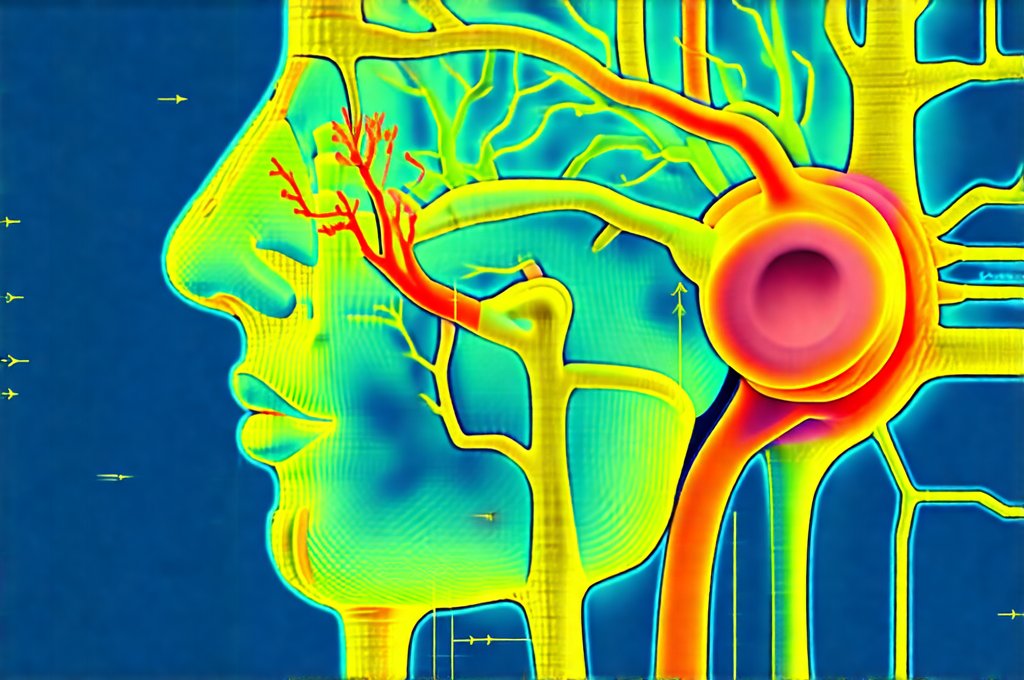Reflux, often perceived as a simple digestive issue, is increasingly understood as a complex interplay between our gut and brain – a bidirectional communication system crucial for overall health. For many, it’s the burning sensation in the chest, the sour taste in the mouth, or the persistent feeling of indigestion. But beyond these common symptoms lies a fascinating network of neurological and physiological connections that reveal far more than just excess stomach acid. The patterns in which reflux manifests – its frequency, timing, associated symptoms, and even triggering factors – are not merely random occurrences; they’re potential signals from the gut communicating stress, anxiety, or imbalances within our internal ecosystem. Understanding these patterns isn’t about self-diagnosing, but about gaining a deeper awareness of how our bodies function and recognizing when to seek professional guidance.
Traditionally, reflux has been attributed primarily to physiological factors like weakened lower esophageal sphincter (LES) or hiatal hernia. While these certainly play a role, this viewpoint overlooks the significant influence of the nervous system. The gut isn’t just a passive receiver of food; it’s an active participant in our emotional and mental state. This “gut-brain axis” is comprised of direct physical connections like the vagus nerve, as well as indirect pathways involving hormones, neurotransmitters, and immune factors. Disruptions within this system can manifest as digestive symptoms, including reflux, and conversely, digestive issues can impact mood, cognition, and even behavior. Recognizing reflux not just as a physical problem but as a potential communication from the gut-brain axis opens up new avenues for holistic wellness strategies. You might also want to learn about your cravings and what they can tell you about underlying intolerances.
The Vagus Nerve: A Highway Between Gut & Brain
The vagus nerve is arguably the most important connection in the gut-brain axis, acting as a two-way street for information transfer. It’s the longest cranial nerve in the body and directly impacts digestion, heart rate variability, inflammation, and even mental health. Think of it as a superhighway sending constant updates between your digestive system and your brain. When things are functioning smoothly – good diet, low stress – the vagus nerve promotes what’s called “vagal tone,” indicating a healthy parasympathetic nervous system response. This is associated with feelings of calm, improved digestion, and resilience to stress.
However, chronic stress, poor dietary habits, or inflammation can negatively impact vagal tone. A weakened vagus nerve means less effective communication between the gut and brain, potentially leading to digestive issues like reflux. For example, anxiety often triggers an overproduction of stomach acid, but it’s not just about the acid itself. The anxious state impacts vagal tone, reducing the ability of the nervous system to regulate digestion effectively. This can result in a vicious cycle where stress causes reflux, and reflux exacerbates feelings of anxiety.
Furthermore, the gut microbiome profoundly influences vagal nerve function. A diverse and healthy gut microbiome produces neurotransmitters like serotonin and dopamine which directly impact mood and brain function, but also modulate vagal signaling. An imbalance in gut bacteria – dysbiosis – can disrupt this process, leading to altered vagal tone and increased susceptibility to reflux symptoms. Therefore, supporting a healthy gut microbiome through diet and lifestyle is crucial for optimal vagal nerve function and overall health. Understanding food triggers can also help improve your digestive well-being.
Reflux Patterns & Emotional State
The timing of reflux episodes often correlates with emotional states. Many individuals report experiencing heightened symptoms during periods of stress or anxiety. This isn’t coincidental; it’s the brain signaling to the gut, and vice versa, in a feedback loop. – A pattern of reflux consistently occurring before stressful events (like public speaking or important meetings) suggests a strong link between psychological pressure and digestive response. – Conversely, experiencing reflux after stressful situations indicates the body may be struggling to return to a state of calm and balance.
Beyond acute stress, chronic emotional states also play a role. Individuals dealing with long-term anxiety or depression often experience more frequent and severe reflux symptoms. This is partly due to the impact of these conditions on vagal tone, but also because they affect gut motility (the movement of food through the digestive tract) and inflammation levels. Identifying these patterns – recognizing that your reflux isn’t just about what you ate, but how you were feeling when it occurred – is a crucial step towards understanding the gut-brain connection at play. It’s also important to understand abdominal x-rays and what they can reveal about digestive problems.
The Role of Gut Motility & Peristalsis
Gut motility refers to the movement of food through the digestive tract. This process, driven by waves of muscle contractions called peristalsis, is heavily influenced by the nervous system and can be significantly disrupted by stress and anxiety. When we’re stressed, our bodies often shift into “fight or flight” mode, diverting blood flow away from the digestive system and slowing down peristalsis. This slower movement allows food to sit in the stomach for longer, increasing the risk of acid reflux.
Furthermore, dysregulation of gut motility can lead to conditions like gastroparesis (delayed gastric emptying) or rapid gastric transit, both contributing to varying reflux patterns. Gastroparesis may result in less frequent but more severe episodes as food remains in the stomach and ferments, while rapid transit could cause more frequent, milder symptoms due to faster acid production and reduced absorption of nutrients. Addressing gut motility often involves strategies like stress management techniques (yoga, meditation), dietary adjustments (fiber intake, avoiding trigger foods), and sometimes prokinetic medications prescribed by a healthcare professional. You may also want to explore soy intolerance reactions as they can affect gut motility.
Identifying Trigger Foods & Emotional Triggers
While food sensitivities can undoubtedly contribute to reflux, it’s important not to solely focus on the what you eat but also the how and why. Trigger foods aren’t necessarily universally problematic; they often reflect individual sensitivities and emotional associations. – For some, spicy foods might be a trigger, while for others, it’s caffeine or alcohol. – However, even seemingly innocuous foods can cause reflux if consumed when stressed or anxious. This is because stress alters digestive function, making the body less efficient at processing food.
Keeping a detailed “reflux diary” can be incredibly helpful in identifying both food and emotional triggers. Record what you eat, when you experience symptoms, your emotional state at the time, and any relevant contextual factors (e.g., stressful events, lack of sleep). This allows for a more nuanced understanding of your individual patterns and helps pinpoint potential underlying causes beyond just dietary issues. It’s also crucial to remember that emotional eating – using food as a coping mechanism for stress or negative emotions – can exacerbate reflux symptoms and create a cycle of discomfort and emotional dependence. Consider looking into egg intolerance in children, which could be contributing to digestive issues.
Beyond Acid: The Inflammatory Component
Reflux isn’t always about excessive acid production; it often involves inflammation within the esophagus and stomach lining. Chronic inflammation is closely linked to gut dysbiosis, increased intestinal permeability (“leaky gut”), and immune system dysfunction – all factors influenced by the gut-brain axis. When the gut barrier becomes compromised, undigested food particles and toxins can leak into the bloodstream, triggering an inflammatory response that extends beyond the digestive system. This systemic inflammation contributes to a range of health issues, including reflux symptoms.
The brain also plays a role in modulating inflammation. Chronic stress releases cortisol, a hormone that initially suppresses immune function but eventually leads to chronic low-grade inflammation. This prolonged inflammation can further disrupt gut barrier integrity and exacerbate reflux symptoms, creating a feedback loop between the gut and brain. Addressing inflammation often involves dietary changes (reducing processed foods, sugar, and inflammatory fats), incorporating anti-inflammatory foods (fruits, vegetables, omega-3 fatty acids), managing stress levels, and supporting gut health through probiotics and prebiotics. A swollen tongue can also be a sign of intolerance contributing to inflammation.
The type of reflux experienced can also indicate an inflammatory component. – Heartburn accompanied by a bitter or metallic taste might suggest acid reflux related to diet or lifestyle. – However, persistent burning sensations that aren’t relieved by antacids, along with symptoms like bloating, gas, or abdominal pain, could indicate inflammation and require further investigation. It’s essential to remember that self-treating reflux for extended periods without addressing the underlying causes can mask more serious conditions and delay appropriate medical care. Understanding how your nails reveal about food reactions can also help identify potential inflammatory triggers.
Ultimately, recognizing reflux as a communication from your gut – a signal reflecting the intricate interplay between your physical and emotional wellbeing – is the first step towards a more holistic approach to health. It’s about listening to your body, understanding its patterns, and seeking support when needed.


















